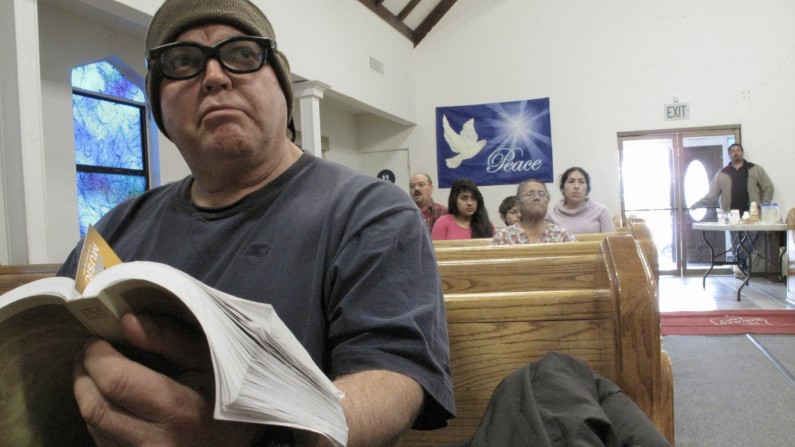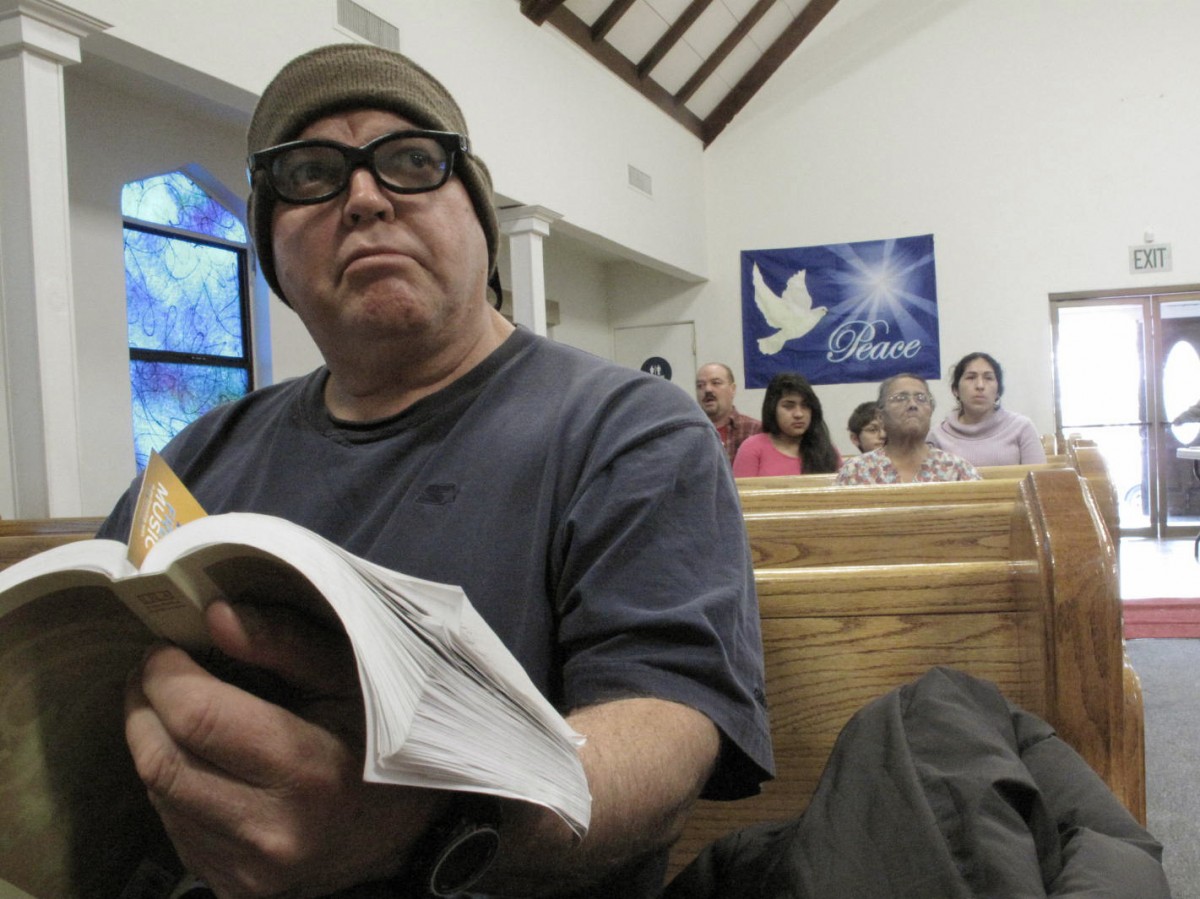
WASHINGTON–More than 1.7 million people have lost their unemployment benefits since Congress failed to pass an extension of the Emergency Unemployment Compensation last month. That number is expected to triple in the coming months meaning more and more people will lose their only income during an unforgiving economy.
The issue stems from a Congress divided by party politics. Republicans want a “pay-for” before they extend benefits, while Democrats argue that unemployment compensation itself is important enough of an issue to be dealt with alone.
The partisan bickering frustrates Stan Osnowitz, an out-of-work electrician who will soon run out of his regular unemployment benefits.
“It’s Republicans against Democrats, and they’re not looking out for the good of the economy,” Osnowitz told MintPress.
Osnowitz says he’s only been employed about eight months since 2011. Fortunately, Osnowitz worked a contract from January through July last year giving him some savings and also making him eligible for unemployment insurance again.
But it only goes so far. The weak economy means less building, so less need for electricians. The unseasonably bad weather this year didn’t help, either.
“The money I made, I’m spending to try to stay alive,” he said.
With tens of thousands of Americans losing their only lifeline each week, many families face defaulting on mortgage and rent payments, and wondering how they are going to put food on the table or gas in the car. Some, like Osnowitz, are dipping into retirement savings.
The expiration of EUC also worries economists and other policy watchers who believe it will place another drag on expansion and further hurt economically vulnerable Americans.
“It’s a real tragedy,” said Steve Billet, Director of George Washington University’s Legislative Affairs Master’s Degree and PAC Management Graduate Certificate. “The unemployed have clearly fallen victim to the hyper-partisanship that we see, and I think as we get closer to 2016 and the midterm elections this year, it’s just going to get even worse.”
Obstinate Unemployment
When the Congressional Budget Office released its Budget and Economic Outlook report this week, it projected that this year will see 3.1 percent in gross domestic product growth. That will rise to 3.4 percent in the next two years, the highest since before the last recession. However, the workforce won’t realize the benefits for a while with the official unemployment rate to hover around the same at 6.6 to 6.7 percent through the end of the year. The rate is then expected to decrease within a couple of years but never fall below 6 percent. That may be lower than the recession levels of over 10 percent, but it is still a historically high figure.
The latest jobs report from the Labor Department – released this week – did show a minor decrease in the unemployment rate from 6.7 to 6.6 percent. The official rate, calculated by the Bureau of Labor Statistics, does not take into account “discouraged” workers who have “given up” looking for work after extended unemployment. Add them and the rate rises to 7.1 percent. Include those restricted to working part-time and the unemployment rate jumps up to nearly 13 percent – as also calculated by BLS. Often, this rate and the official rate do not change proportionally as was the case in December when the official rate lowered from 7 percent to 6.7 percent, but the total unemployed stayed steady at 13.1 percent. Such was the result of the fact that 347,000 job seekers became “discouraged” and stopped looking for work, far more than the 143,000 who actually found work.
Some economists worry that letting the EUC program expire will add to the rolls of discouraged workers. Recipients of unemployment insurance are required to seek jobs while they are receiving benefits. Often, after spending so much time without finding work, they will stop looking, seeing no use in it after their benefits end.
Additionally, economists point to data that shows that paying unemployment benefits actually helps the economy overall. Moody’s Analytics, for example, posits that every dollar the government spends in extending unemployment for the jobless, the economy derives 150 percent in added value.
As in the case of Osnowitz, less income means fewer purchases and also less in tax revenue, adding up to a total social cost of nearly $40 billion.
“The unemployment rate is going down slightly, but we’re still in a very sluggish economy and we really haven’t recovered in any significant way since 2008,” Billet told MintPress. “There’s more unemployed than we should have in this particular stage, and the numbers suggest there is a role to be played here by the government
The Political Impasse
The current EUC program was implemented in June 2008, and extended every year since until this year, when Congress let it expire on Jan. 1. Intended to relieve the chronically unemployed during a time of economic stagnation, the program funded another 47 weeks for the jobless whose regular benefits were coming to an end.
The latest effort put forward in the Senate – a three-month extension of EUC – fell one vote short of the 60 votes to overcome a Republican filibuster challenge this week. Republicans have demanded that any bill include a “pay for,” a provision that would offset the estimated $6 billion cost to the government, particularly a cut from other government spending.
In this case, Democrats offered cuts to pensions – euphemistically called “pension smoothing,” – in which employers are allowed to reduce payments to employee pension funds which would, in turn, increase corporate profit and then tax revenue.
Osnowitz places more blame on Republicans – his old affiliation – but he generally disapproves of the way it has been handled in Washington, a mere hour away from his Baltimore home.
“They’re not looking out for the good of the people but just looking out for themselves,” he said.
Billet suggested the Democrats could have offered more, but it’s hard to say if it could have been enough. One example: Democrats might have offered Republicans an open amendment vote on a repeal of cuts to military pensions they are looking for.
Regardless, he agrees with Osnowitz that the inaction reflects Congress as a whole just doesn’t care enough.
“People are suffering because Washington has refused to address this issue,” he said.
Working for Work
Osnowitz is a good example of the need for unemployment benefits given regular obstacles to finding jobs. At 67 years old, age discrimination is one factor.
“Once they see my age, they just toss my resume,” he said.
Then there’s the impact of the weather. Snow storms and extreme cold mean delayed projects, temporarily putting off employment for tradesmen like Osnowitz.
Once the weather breaks, he plans to hit the road for New York, New Jersey and Ohio, where he thinks more work might be available. As always, those trips will each be made in a day to avoid hotel expenses.
“Being unemployed, people think it’s a lazy way to do it,” Osnowitz said. “It’s not. I am bored to death being home. If this is any sign of what retirement is, I don’t want to have anything to do with it. I’m still active. I still have my mind, I still have my ability to do the job.”


